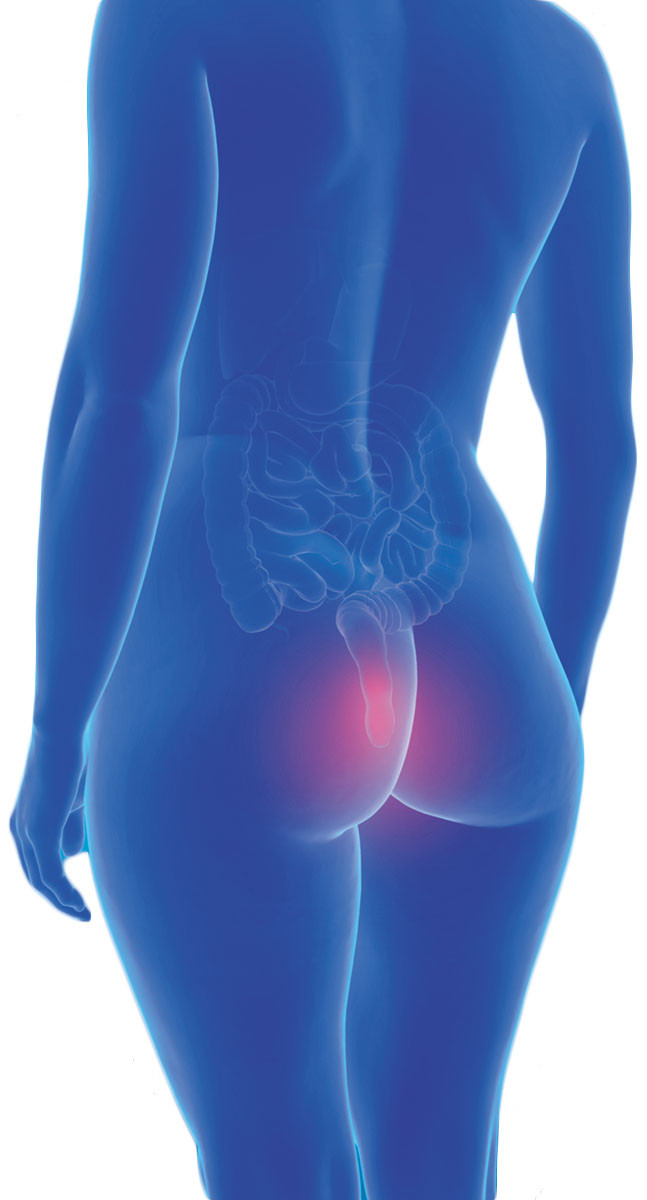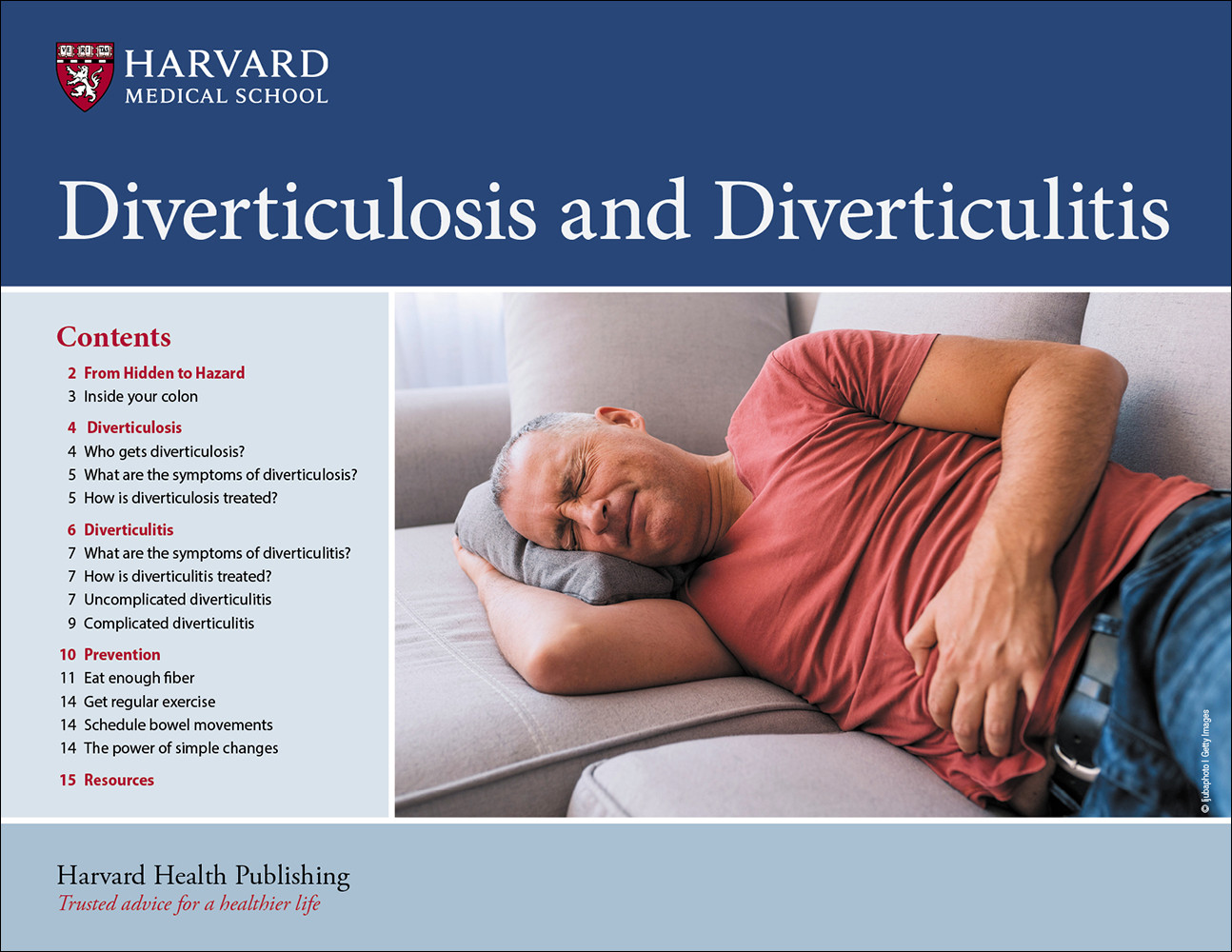A pain in the rear
Hemorrhoids are highly common, but many people delay needed treatment.
- Reviewed by Toni Golen, MD, Editor in Chief, Harvard Women's Health Watch; Editorial Advisory Board Member, Harvard Health Publishing; Contributor
 We're all born with eyes, ears, arms, legs… and the makings of hemorrhoids. While they're not what we think of as a body part, the blood vessels that pad the anus and rectum are nonetheless part of all of us — and one that few mention in polite company.
We're all born with eyes, ears, arms, legs… and the makings of hemorrhoids. While they're not what we think of as a body part, the blood vessels that pad the anus and rectum are nonetheless part of all of us — and one that few mention in polite company.
These blood vessels only become problematic when they enlarge. Before that, they "actually contribute to some of our continence — they hold things in place," says Dr. Anne Fabrizio, a proctologist at Harvard-affiliated Beth Israel Deaconess Medical Center.
But when symptoms emerge — ranging from barely noticeable to excruciating — they can disrupt our days. About half of adults have experienced some degree of hemorrhoidal symptoms by age 50. Pain, itching, swelling, and bleeding can progress to a point where hemorrhoids bulge dramatically and develop blood clots that prove agonizing, Dr. Fabrizio says.
"It's an incredibly common problem that can have a huge impact on quality of life," she says. "But a lot of people try to ignore it for a long time, partly because it can be embarrassing, so they hesitate to bring it up."
Serious complications
Hemorrhoids are classified into two types depending on where they're found. External hemorrhoids are visible at the anus, while internal ones are inside the rectum. The latter tend to produce painless, bright red bleeding with bowel movements, but not much pain, Dr. Fabrizio says.
Because any rectal bleeding is concerning — possibly signaling colorectal cancer — you should see a doctor, even if you're unbothered and convinced internal hemorrhoids are the cause.
Pregnancy is one of the top risk factors for hemorrhoids because it intensifies pressure in the rectum. Others include aging, chronic constipation or diarrhea, and obesity. But women are likely to delay hemorrhoid treatment in the years after childbirth — when the problem can flare — as they juggle family with other priorities.
This is a mistake, Dr. Fabrizio says. Putting off care can lead to potentially serious complications as well as needless suffering for anyone with hemorrhoids. "They may be uncomfortable all the time, in pain, and thinking of their hemorrhoids when they're supposed to be focused on other things," she says.
When hemorrhoids get extremely large, mucus can seep out. So can blood. "A worst-case scenario is that people can get really anemic," Dr. Fabrizio adds. "They can have significant blood loss that harms their overall health."
Treatment strategies
Drugstore hemorrhoid remedies are often the first thing people try when symptoms are mild. These include pain relievers, along with witch hazel pads and topical creams and ointments to reduce itching and discomfort. Shallow sitz baths and cold compresses can also bring relief.
But while these tactics are "great for symptom management," Dr. Fabrizio says, "they don't tackle the underlying problem. They don't really make a hemorrhoid go away. That's why you should see a doctor."
Seeking care early also widens your treatment choices before the problem worsens to a point of needing more extreme — and potentially painful — options. One tool is prescription hydrocortisone suppositories, which can be used for short-term hemorrhoid inflammation.
Most patients who see a doctor early and take steps toward having easy, regular bowel movements can often sidestep the worst symptoms of hemorrhoids — or even prevent symptoms from arising at all, she says.
For internal hemorrhoids, the doctor may recommend a procedure to eliminate the hemorrhoid by cutting off its blood flow. One option is sclerotherapy, which involves a chemical injection into the hemorrhoid. Another is banding, in which the doctor places a small rubber band around the base of the hemorrhoid. In both cases, the bulging vessel eventually withers away.
For large, bulging external hemorrhoids, surgery called hemorrhoidectomy is the only permanent removal option. Dr. Fabrizio acknowledges the procedure is painful, but often worth it. "I tell patients that hemorrhoidectomy brings short-term, guaranteed pain, but offers long-term symptom improvement."
Preventing hemorrhoids from enlarging in the first place is the ideal, of course. Dr. Fabrizio recommends preventing constipation by eating fiber-rich foods and drinking plenty of water. Also, avoid straining for long periods on the toilet and aggressive wiping, which can lead to more irritation.
"Hemorrhoids are something we've been dealing with for centuries," she says. "Talking about them more would make people more comfortable seeing a doctor earlier, which would be a win-win."
Image: © Lars Neumann/Getty Images
About the Author

Maureen Salamon, Executive Editor, Harvard Women's Health Watch
About the Reviewer

Toni Golen, MD, Editor in Chief, Harvard Women's Health Watch; Editorial Advisory Board Member, Harvard Health Publishing; Contributor
Disclaimer:
As a service to our readers, Harvard Health Publishing provides access to our library of archived content. Please note the date of last review or update on all articles.
No content on this site, regardless of date, should ever be used as a substitute for direct medical advice from your doctor or other qualified clinician.
















